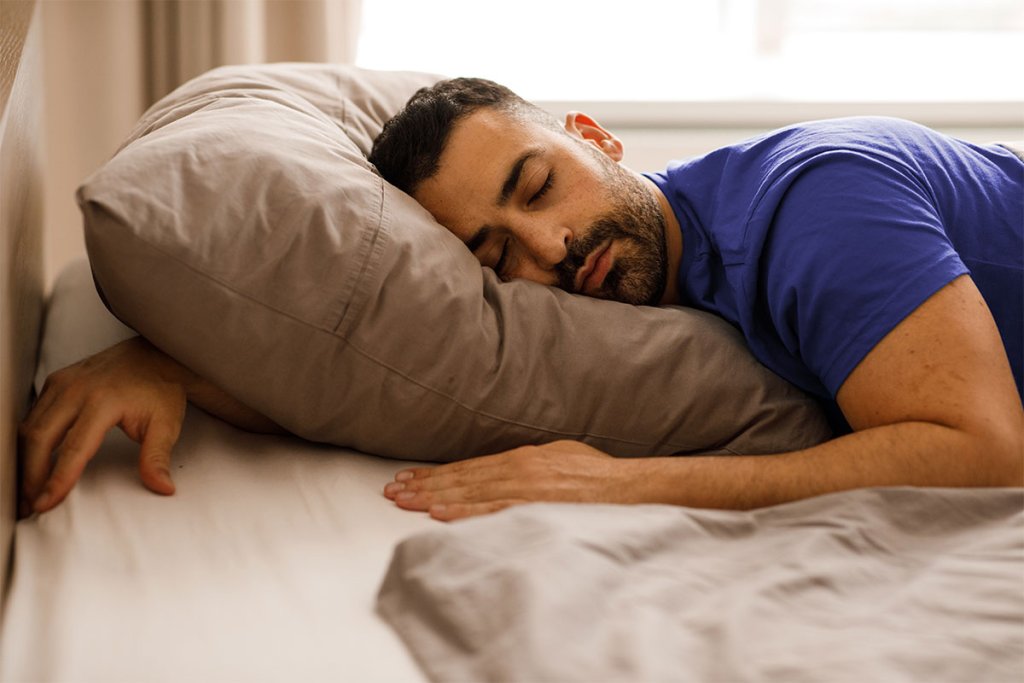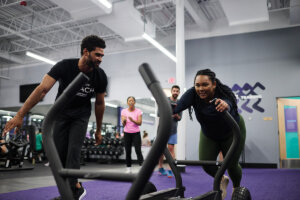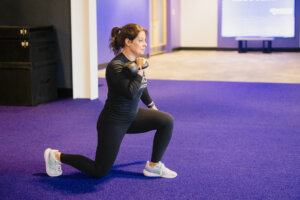We all know what the doctor says… regular exercise and getting adequate sleep are crucial elements of a healthy lifestyle. But for most of us, trying to balance both can seem impossible. Between jobs, children, chores, and a handful of other things, it just doesn’t always seem like there’s enough time in the day—and if there is, what should take priority?
Picture This
You set your alarm an extra hour early because a morning workout seems like the only possible way to fit some sort of physical activity in (because whoever has too much time on their hands?). So,you bump up your bedtime in hopes of getting enough shut-eye in order to be somewhat alert the next day when your alarm goes off. But then as the clock counts down, you start to run out of time to do… well, everything! By the time you pick up the kids, take each kid to their sport or activity, make dinner, and get everyone situated at bedtime, you realize you maybe have 15 minutes to yourself before your head should hit the pillow in hopes of getting enough shuteye—which is 6-8 hours of sleep according to your doctor.
So, it forces you to ask the question: which is the best choice… physical activity or a good night’s sleep? And unfortunately, there is no easy answer. Just like drinking water and eating a healthy diet is important, regular exercise AND getting 6-8 hours of sleep each night play a factor in your overall total health and wellness.
Just 15 to 30 minutes of exercise per day can help you:
- Reduce stress and enhance your mood
- Improve alertness
- Build self-esteem
- Decrease your risk of diabetes and cardiovascular disease (heart disease)
- Burn calories, lose weight, and build muscle
- Release toxins through sweat
- Reach deeper sleep and improve your body’s circadian rhythms
Adequate sleep helps:
- Improve mental health
- Reduce brain fog
- Boost immune system
- Improve physical performance
- Enhance learning and memory
- Prevent weight gain
How long do I actually need to sleep?
As we know, sleep has a direct impact on our wellbeing each day, and science has proven that there’s also a direct correlation to physical performance. The purpose of our circadian rhythms is to influence our sleep cycle, which is made up of four different stages that we pass through (multiple times) in a full night’s sleep:
NREM Stage 1: the quick transition period between being awake and sleep.
NREM Stage 2: your body temperature begins to drop, and your heart rate slows down as your brain begins to produce wave activity known as “sleep spindles.”
NREM Stage 3: muscles relax, blood pressure and breathing slows; this is where your deepest sleep occurs.
REM Sleep: your body becomes immobile, while your brain begins to be more active; this stage is when dreams occur.
According to research, NREM Stage 3 and REM Sleep are the stages where your body’s energy begins to restore. So if you’re not getting much sleep in the later stages, you may begin to feel the consequences in your workouts and daily life—like needing that 4pm nap. (Side note: if you do choose to take a nap, aim for 15 or 20 minutes. Long naps, or naps that last 30 minutes or more, can have a reverse effect and make you more tired.)
So everyone wonders: do we really need 6-8 hours of sleep? Doctors and sleep experts have studied human’s sleep patterns and actions with fancy devices for over a century, and looking at patients’ personal data over all of this time has shown the same thing that it does today: adults really do need 6-8 hours of sleep per night. When you sleep a full 8 hours, only 1-2 hours are actually considered “good sleep” in the later stages of the cycle. So if you decide to cut your sleeping time short to fit in a morning workout, remember this may cause sleep debt. And contrary to what teenagers believe, the problem with this is that paying your dues isn’t as simple as getting extra sleep on the weekends or taking longer naps. So in fewer words, the best way to encourage healthy sleep habits is to try and get 6-8 hours of sleep, whenever possible.
When to Choose Zzz’s Over the Gym
Like we mentioned, lack of sleep will have an impact on your physical performance in—and outside—of the gym. In fact, heading to the gym for a strenuous workout on minimal sleep can actually cause more harm than good. Pushing your body when it’s on E can weaken your immune system, plus you’re not able to perform to your highest ability, which means you’re not gaining many benefits from the workout. And if you think you are, think again! Sleep deprivation interferes with your body’s response to a workout and makes it harder to repair your muscles and tissues, and also increases your risk of injury. Did we make our point yet?!
So… what is the “right” choice?
Should you sleep more and work out less, or workout more and sleep less?
In short: listen to your body.
Exercise and sleep are equally important for your health and one shouldn’t be sacrificed for the other. Everyone has different preferences about when they like to work out, but the key is to find out what works best for YOU. If morning workouts don’t seem to be doing it, try evening workouts—or vice versa!
It’s completely normal to feel tired and sluggish, and hesitant to go to the gym every once in a while. And when you do feel like that, it’s important to remember that it’s OK. Just because you didn’t make it to the gym, doesn’t mean you can’t take a step towards making healthy happen! Instead of feeling down on yourself and guilty, do something for your body instead! Maybe give yourself an extra hour of sleep, make a healthy meal, or run around with your children (which can double as aerobic exercise!). In the long-run, you’ll see more benefits from the decision to take a rest day than you would if you had forced yourself to go to the gym.
For more information, read our articles on nutrition, sleep and recovery.



